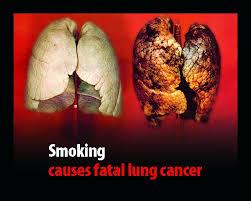
After a lung cancer diagnosis, probably one of the last things on your mind will be whether — and how — to tell your employer about the diagnosis. But as the reality of your diagnosis sinks in and you begin to coordinate a lung cancer treatment, this is an issue you will have to face.
Lung Cancer: Learning the Law
When and whether you want to tell your employer about a lung cancer diagnosis is entirely up to you. You may be worried that you will be treated differently if your employer knows about the lung cancer. You may even be worried that the diagnosis could affect your job security. But there are laws in place to protect your rights when you have cancer. Some basic rights to keep in mind:- The law. In the United States, the Americans with Disabilities Act (ADA) and the Family and Medical Leave Act (FMLA) are in place to protect you.
- Anti-Discrimination. The ADA stipulates that private employers with at least 15 employees, as well as local and state government employers, cannot discriminate against people with disabilities. A related law covers federal government workers as well. Cancer is often considered a disability under the ADA, especially when it limits the ability to participate in "major life activities."
- Medical exams. According to the ADA, an employer cannot require you to take a medical exam to screen for a serious illness such as lung cancer before you are hired. The ADA also prohibits employers from asking questions about your health, unless the questions relate to your ability to do your job.
- Confidentiality. If you do decide to tell your employer about the lung cancer, the ADA requires the employer to keep your medical information confidential from other employees. You also have the right to receive the accommodations you need, such as time to go to doctor's appointments, time to undergo and recover from treatment, breaks to rest or take medication, adjustments in your work schedule, and permission to work from home if applicable to the job.
- Job security. The FMLA protects your job, even if you must take time off for lung cancer treatment. Under this act, employers must give employees up to 12 work weeks of unpaid leave each year to deal with family and medical issues, including taking medical leave because of a serious illness. Businesses that employ at least 50 people for 20 or more work weeks a year are required to comply with the FMLA.
Lung Cancer: When and How to Tell Your Employer
Once you've decided to inform your employer about your condition, experts recommend not waiting too long. "In general, the recommendation would be that people would generally want to inform their employer up front," says Carolyn Messner, DSW, MSW, director of education and training for CancerCare and an oncology social worker in New York City.
This is especially the case if you will be taking a significant amount of time off work for lung cancer treatment and recovery. It might be good to explain your situation to your employer before treatment starts. "If you are suddenly taking lots of sick time with no reason, the employer might wonder what is wrong," Messner says.
Other tips to consider:- Devise a plan. Although you don't want to wait too long before telling your employer about the lung cancer, it's important to take some time, do some research, and think about how much you want to disclose. Before talking to your employer, have a discussion with your doctor about how the lung cancer and its treatments could affect your ability to work.
- Get a doctor's note. Get a letter from your doctor — "a simple letter saying that Ms. Jones is under my care for cancer; she will be out of work for some time; she will be able to return to work; and it will be safe for her to return to work," says Messner. "Less is more. It really should be written very simply."
- Read your benefits. Review your employee handbook and description of benefits to see if you have access to disability insurance, which covers some or most of a salary even when time is taken off for treatment.
- Do your homework. Contact an organization such as CancerCare before meeting with your employer to review the doctor's note and talk with an oncology social worker about how the conversation is going to go. "I suggest that people do a dry run to practice what they are going to say," says Messner. "By the time you get to your employer, you should have a pretty scripted message that you are giving: 'Yes, this has happened. I need to take some time off, and I will be able to get back to work.' "
- Be specific. Be clear about the work functions you can continue doing, and what you expect your limitations will be.
The most important thing to do right now is to focus on your health and getting better. Take this opportunity to let your employer know how the company can support you so that you will be able to concentrate on the treatment and recovery.



0 nhận xét:
Speak up your mind
Tell us what you're thinking... !